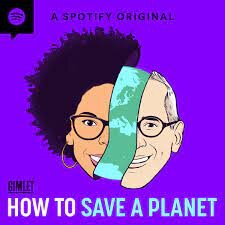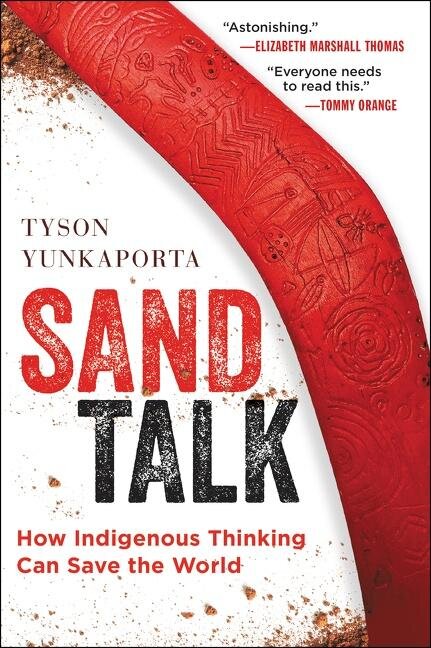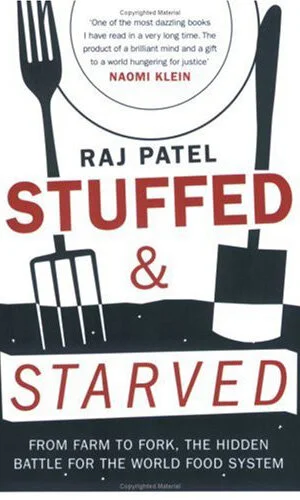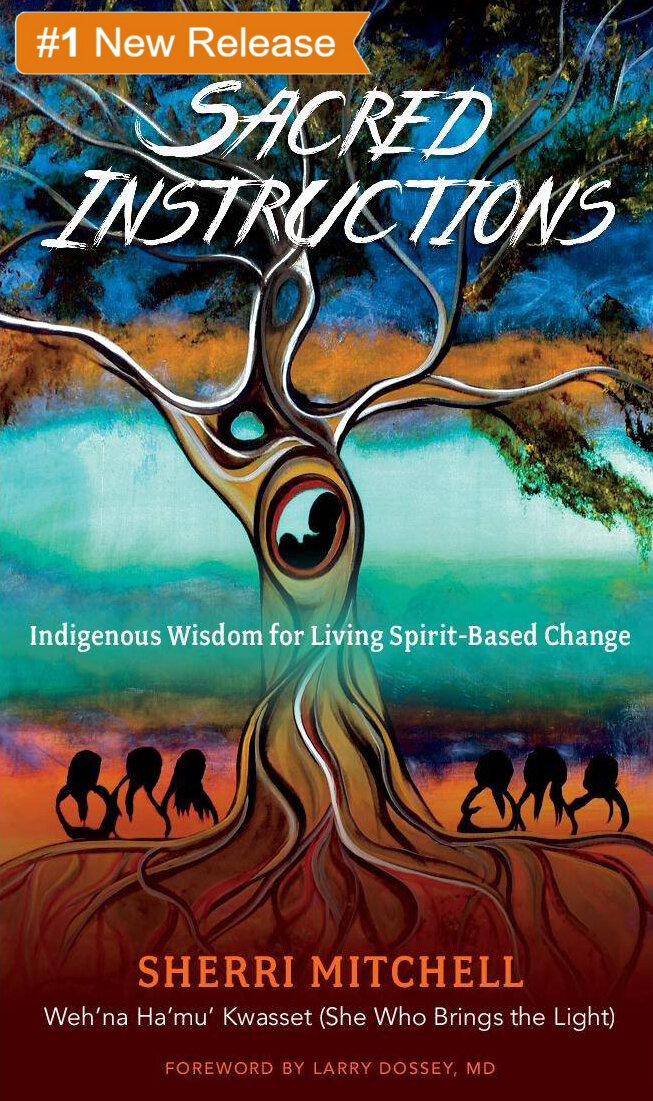Recommendations:
Music, Film, Podcasts, and Books
Compiled by Iris Burbank for Partners for Climate Action, Spring 2021
Music
Films & Videos
Kiss the Ground
Documentary, 2020. “Activists, scientists, farmers, and politicians turn to regenerative agriculture to save the planet's topsoil.”
Waking the Green Tiger
Documentary, 2011. “Activists, farmers and journalists campaign to stop a massive dam project on the Upper Yangtze River in southwestern China. Featuring footage never seen before outside of China as well as interviews with government insiders and witnesses.”
Hudson River Stories
Documentary, ongoing. Local filmmaker and National Geographic adventurer Jon Bowermaster’s series Hope on the Hudson and The Hudson: A River at Risk portray the role of the Hudson River in our area and the climate change work our communities are doing.
Our friends at the Climate Resilience Partnership and Hudson River Estuary Program created this video.
Chasing Ice
Documentary, 2012. “Follow National Geographic photographer James Balog across the Arctic as he deploys time-lapse cameras designed for one purpose: to capture a multi-year record of the world's changing glaciers.”
The Harvest / La Cosecha
Documentary, 2010. “Director U. Roberto Romano examines the plight of migrant child farmworkers, focusing on three youths as they toil around the country picking crops.”
e²
Documentary series. e² is a critically acclaimed, multipart PBS series about the innovators and pioneers who envision a better quality of life on earth: socially, culturally, economically and ecologically. Check out Season 1: Transportation, for example.
The series explores attainable solutions to pressing environmental and social challenges, and its stories are culled from a variety of fields including design, energy, transport, water, food and urban development.
The 2008 season of e² is presented in two parts, "e² design" and "e² transport". Their website is unfortunately in Flash, but you might be able to find seasons on Amazon Prime or Youtube.
More Videos
What is Environmental Racism (2:56)
Environmental Racism is the New Jim Crow (1:27)
Environmental Justice Explained (3:33)
How Black Lives Matter And Environmental Justice Are Connected (5:59)
Dear Future Generations : Sorry (6:02)
Why are humans so bad at thinking about climate change (9:44)
How to Talk to Climate Change Deniers (8:05)
Why Don’t People Believe in Climate Science (7:33)
The Sustainable City of the Future: Copenhagen, Denmark (5:48)
Podcasts
How to Save a Planet
Gimlet Media, ongoing. “Does climate change freak you out? Want to know what we, collectively, can do about it? Us too. How to Save a Planet is a podcast that asks the big questions: what do we need to do to solve the climate crisis, and how do we get it done?” Hosted by Alex Blumberg and scientist and policy nerd Dr. Ayana Elizabeth Johnson.
Next Stop Now
Ecological Citizen’s Project. “Right now, ordinary people are pioneering more just, healthy, democratic and sustainable futures by changing the ways they live or how they work with others to change their communities.” Hudson Valley-based.
The Social Life of Forests
The Sunday Read, from The New York Times, The Daily, 2020. “Trees appear to communicate and cooperate through subterranean networks of fungi. What are they sharing with one another?”
Books
Sand Talk: How Indigenous Thinking Can Save the World
by Tyson Yunkaporta
“A paradigm-shifting book in the vein of Sapiens that brings a crucial Indigenous perspective to historical and cultural issues of history, education, money, power, and sustainability—and offers a new template for living. As an indigenous person, Tyson Yunkaporta looks at global systems from a unique perspective, one tied to the natural and spiritual world.”
Climate—A New Story
by Charles Eisenstein
“Flipping the script on climate change, Eisenstein makes a case for a wholesale reimagining of the framing, tactics, and goals we employ in our journey to heal from ecological destruction.”
Young Farmers Racial Equity Toolkit
by the National Young Farmers Coalition
“This toolkit is a starting point. It aims to orient and incite members toward preliminary consciousness-raising and direct action. This toolkit does not detail a universally applicable pathway toward resolving pervasive racialized oppression; it is an initial resource for people who are overwhelmed by the breadth and depth of the problem, and need help determining how to start dismantling racism in their communities.”
Braiding Sweetgrass: Indigenous Wisdom, Scientific Knowledge, and the Teachings of Plants
by Robin Wall Kimmerer
“As a botanist, Robin Wall Kimmerer has been trained to ask questions of nature with the tools of science. As a member of the Citizen Potawatomi Nation, she embraces the notion that plants and animals are our oldest teachers. In Braiding Sweetgrass, Kimmerer brings these lenses of knowledge together to show that the awakening of a wider ecological consciousness requires the acknowledgment and celebration of our reciprocal relationship with the rest of the living world. For only when we can hear the languages of other beings are we capable of understanding the generosity of the earth, and learning to give our own gifts in return.”
What is Critical Environmental Justice?
by David Naguib Pellow
“Human societies have always been deeply interconnected with our ecosystems, but today those relationships are witnessing greater frictions, tensions, and harms than ever before. These harms mirror those experienced by marginalized groups across the planet.
In this novel book, David Naguib Pellow introduces a new framework for critically analyzing Environmental Justice scholarship and activism.”
Stuffed and Starved
by Raj Patel
“Half the world is malnourished, the other half obese—both symptoms of the corporate food monopoly. To show how a few powerful distributors control the health of the entire world, Raj Patel conducts a global investigation, traveling from the “green deserts” of Brazil and protester-packed streets of South Korea to bankrupt Ugandan coffee farms and barren fields of India. What he uncovers is shocking—the real reasons for famine in Asia and Africa, an epidemic of farmer suicides, and the false choices and conveniences in supermarkets. Yet he also finds hope—in international resistance movements working to create a more democratic, sustainable, and joyful food system.”
The Omnivore’s Dilemma
by Michael Pollan
“What should we have for dinner? The question has confronted us since man discovered fire, but according to Michael Pollan, the bestselling author of The Botany of Desire, how we answer it today, at the dawn of the twenty-first century, may well determine our very survival as a species. Should we eat a fast-food hamburger? Something organic? Or perhaps something we hunt, gather, or grow ourselves? The omnivore’s dilemma has returned with a vengeance, as the cornucopia of the modern American supermarket and fast-food outlet confronts us with a bewildering and treacherous food landscape. What’s at stake in our eating choices is not only our own and our children’s health, but the health of the environment that sustains life on earth.”
Greening the Red, White, and Blue: The Bomb, Big Business, and Consumer Resistance in Postwar America
by Thomas Jundt
“In popular imagination, environmentalism is often linked to Rachel Carson's Silent Spring and the political activism of the 1960s and '70s that moved increasing numbers of Americans to insist on a better quality of life-open spaces, clean air and water, beautification campaigns. But these interpretations have obscured the significant origins of environmentalism as a moral and intellectual broadside against the growing power of corporate capitalism, both domestically and in the postwar liberal international order the United States was enacting abroad.”
The Elusive Inclusive: Black Food Geographies and Racialized Food Spaces
by Margaret Marietta Ramírez
“North American food scholars, activists and policymakers often consider how to make a community food project more inclusive to “vulnerable populations” to increase participation in local food efforts. Drawing from qualitative research conducted with two community food organizations in Seattle, Washington, I argue that inclusive efforts are not addressing the power asymmetries present in organizations and within communities. Engaging with black geographies literature, I reveal how a black food justice organization grapples with violent histories of slavery and dispossession rooted in a black farming imaginary, and works to re-envision this imaginary to one of power and transformation.”
The Biophilia Hypothesis
by Stephen R. Kellert, Edward O. Wilson
“‘Biophilia’ is the term coined by Edward O. Wilson to describe what he believes is humanity's innate affinity for the natural world. In his landmark book Biophilia, he examined how our tendency to focus on life and lifelike processes might be a biologically based need, integral to our development as individuals and as a species. That idea has caught the imagination of diverse thinkers.The Biophilia Hypothesis brings together the views of some of the most creative scientists of our time, each attempting to amplify and refine the concept of biophilia. The variety of perspectives -- psychological, biological, cultural, symbolic, and aesthetic -- frame the theoretical issues by presenting empirical evidence that supports or refutes the hypothesis.”
The Resilience Dividend: Being Strong in a World Where Things Go Wrong
by Judith Rodin
“Building resilience--the ability to bounce back more quickly and effectively--is an urgent social and economic issue. Our interconnected world is susceptible to sudden and dramatic shocks and stresses: a cyber-attack, a new strain of virus, a structural failure, a violent storm, a civil disturbance, an economic blow. Through an astonishing range of stories, Judith Rodin shows how people, organizations, businesses, communities, and cities have developed resilience in the face of otherwise catastrophic challenges.”
Sacred Instructions: Indigenous Wisdom for Living Spirit-based Change
by Sherri Mitchell
“Sacred Instructions is a roadmap for those who may be lost—and not even realize it. Sherri Mitchell’s hauntingly beautiful prose truly honors the traditional Native American wisdom that she shares with us as readers. She deftly makes the timeless suddenly modern again, and more relevant than ever, by using ancient perspectives to address the disconnect and disengagement that so many people feel in the world today. The author herself serves as an elder, gently guiding the reader by the hand with her writing and leading them to a higher, or rather deeper, place on their own journey. In a world so often in chaos, it is refreshing to discover ideas that provide such clarity of path and purpose. Her words were like medicine to my spirit and I have no doubt they will be to others as well.”
All We Can Save
Edited by Ayana Elizabeth Johnson & Katharine K. Wilkinson
“All We Can Save is an anthology of writings by 60 women at the forefront of the climate movement who are harnessing truth, courage, and solutions to lead humanity forward.”
Drawdown
Edited by Paul Hawken
“In the spring of 2017, Project Drawdown released its inaugural body of work on climate solutions with the publication of the New York Times bestselling book Drawdown.
Drawdown has become a seminal text on climate solutions, drawing on humanity’s collective wisdom about the practices and technologies that can begin to reverse the buildup of atmospheric carbon by mid-century.
Timefulness
by Marcia Bjornerud
“This compelling book presents a new way of thinking about our place in time, enabling us to make decisions on multigenerational timescales. The lifespan of Earth may seem unfathomable compared to the brevity of human existence, but this view of time denies our deep roots in Earth’s history—and the magnitude of our effects on the planet.”
























